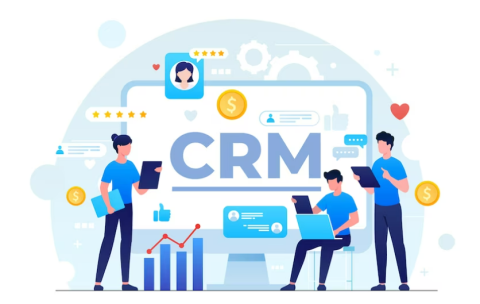Popular Instructors
All Marketing and Branding Courses
What you'll learn
Week 1-2: Introduction to Marketing
Fundamental concepts of marketing
Evolution of marketing theories and practices
The role of marketing in business and society
Week 3-4: Consumer Behavior and Market Research
Understanding consumer decision-making processes
Techniques for conducting market research
Analyzing and interpreting consumer data
Week 5-6: Marketing Strategy and Planning
Developing marketing strategies and plans
Market segmentation, targeting, and positioning
Competitive analysis and strategic marketing decisions
Week 7-8: Product and Brand Management
Product development and life cycle management
Building and managing brand equity
Strategies for product differentiation and positioning
Week 9-10: Digital Marketing and Social Media
Digital marketing channels and strategies
Leveraging social media for marketing
Measuring and analyzing digital marketing effectiveness
Week 11-12: Integrated Marketing Communications
Principles of integrated marketing communications
Advertising, public relations, and sales promotion strategies
Developing effective communication and media plans
Week 13-14: Global Marketing
Challenges and opportunities in global marketing
Cultural, legal, and ethical considerations in international markets
Global marketing strategies and practices
Week 15: Course Review and Final Assessment
Course Materials and Assessment:
Study Materials: Detailed lecture notes, case studies, video lectures, and recommended readings.
Quizzes/Case Studies: Regular quizzes and real-world case studies for practical application of marketing concepts.
MCQs: Multiple choice questions covering key marketing theories and practices.
Simulations: Marketing simulations to provide hands-on experience in crafting and executing marketing strategies.
Final Project: Development and presentation of a comprehensive marketing plan for a real or hypothetical company.
E-commerce and Digital MarketingE-commerce and Digital Marketing
E-commerce and Digital Marketing is a pivotal course in the …
What you'll learn
Week 1-2: Introduction to E-commerce
Overview of e-commerce and its impact on business
Different e-commerce business models
Understanding the e-commerce ecosystem
Week 3-4: Digital Consumer Behavior
Analyzing online consumer behavior and trends
Customer journey mapping in the digital space
Building customer personas for online marketing
Week 5-6: Website Design and User Experience
Principles of effective website design
Enhancing user experience (UX) for e-commerce
Tools and platforms for website creation and management
Week 7-8: Search Engine Optimization (SEO) and Search Engine Marketing (SEM)
Fundamentals of SEO and SEM
Strategies for improving online visibility
Tools and techniques for SEO and SEM
Week 9-10: Social Media Marketing
Leveraging social media platforms for marketing
Creating engaging content and campaigns
Measuring social media marketing effectiveness
Week 11-12: Email Marketing and Online Advertising
Best practices in email marketing
Types and strategies of online advertising
Analyzing and optimizing email and advertising campaigns
Week 13-14: E-commerce Operations and Management
Managing e-commerce operations
Payment gateways and transaction security
Legal and ethical issues in e-commerce
Week 15: Course Review and Final Assessment
Course Materials and Assessment:
Study Materials: Comprehensive lecture notes, in-depth case studies, video tutorials, and essential readings.
Quizzes/Case Studies: Regular quizzes and case studies for practical application of e-commerce and digital marketing concepts.
MCQs: Multiple choice questions to assess theoretical understanding and practical knowledge.
Simulations: Interactive e-commerce and digital marketing simulations for experiential learning.
Final Project: Developing a comprehensive e-commerce business plan or a digital marketing strategy for a real or hypothetical product/service.
What you'll learn
Week 1-2: Introduction to Brand Management
Understanding the concept and importance of branding
Evolution of brand management
The strategic role of brands in business
Week 3-4: Building Brand Equity
Elements of brand equity
Strategies for building and enhancing brand equity
Measuring brand equity
Week 5-6: Brand Positioning and Identity
Developing a brand positioning strategy
Brand identity and image
Case studies on successful brand positioning
Week 7-8: Brand Marketing and Communication
Integrated marketing communications for brands
Brand storytelling and content marketing
Digital and social media strategies for brand marketing
Week 9-10: Consumer Behavior and Brand Loyalty
Understanding consumer behavior in branding
Strategies for building and maintaining brand loyalty
Analyzing customer-brand relationships
Week 11-12: Global Branding Strategies
Challenges and strategies for branding in global markets
Cultural considerations in global brand management
Case studies on global branding successes and failures
Week 13-14: Managing Brand Portfolio and Brand Extensions
Strategies for Brand Portfolio Management
Brand extensions and co-branding strategies
Managing brand dilution and revitalizing brands
Week 15: Course Review and Final Assessment
Course Materials and Assessment:
Study Materials: Detailed lecture notes, case studies, video tutorials, and recommended readings.
Quizzes/Case Studies: Regular quizzes and case studies focusing on practical application of brand management theories.
MCQs: Multiple choice questions to evaluate understanding of key brand management concepts.
Simulations: Brand management simulations for hands-on experience in real-world scenarios.
Final Project: Developing a comprehensive brand strategy for a real or hypothetical product/service.
What you'll learn
Week 1-2: Introduction to Market Research
Understanding the role and importance of market research in business decision-making
Different types of market research (qualitative and quantitative)
Overview of the market research process
Week 3-4: Research Design and Methodologies
Developing research objectives and hypotheses
Designing effective research studies
Qualitative research methods: Focus groups, interviews, ethnography
Week 5-6: Quantitative Research Methods
Survey design and implementation
Sampling methods and techniques
Introduction to quantitative data analysis
Week 7-8: Data Collection Techniques
Primary vs. secondary data collection
Online and offline data collection methods
Ethical considerations in data collection
Week 9-10: Data Analysis and Interpretation
Introduction to statistical analysis for market research
Analyzing and interpreting research data
Using software tools for data analysis
Week 11-12: Reporting and Presenting Research Findings
Creating effective research reports
Visualization of data and findings
Presenting research insights to stakeholders
Week 13-14: Advanced Topics in Market Research
Digital market research tools and techniques
Global market research challenges and strategies
Emerging trends in market research (e.g., AI, Big Data analytics)
Week 15: Course Review and Final Assessment
Course Materials and Assessment:
Study Materials: Comprehensive lecture notes, case studies, video lectures, and essential readings.
Quizzes/Case Studies: Weekly quizzes and practical case studies to apply market research concepts.
MCQs: Multiple choice questions to test theoretical knowledge and understanding.
Simulations: Market research simulations for practical experience in data collection and analysis.
Final Project: Conducting a full market research study, from design to presentation of findings.
Customer Relationship Management
Customer Relationship Management (CRM) is a crucial course in the …
What you'll learn
Week 1-2: Introduction to Customer Relationship Management
Fundamentals of CRM
The role of CRM in business strategy
Evolution of CRM practices
Week 3-4: Understanding Customer Behavior
Analyzing customer needs and preferences
Customer segmentation and profiling
Customer journey mapping
Week 5-6: CRM Strategies and Practices
Developing effective CRM strategies
Best practices in customer acquisition, retention, and loyalty
Integrating CRM with marketing strategies
Week 7-8: CRM Tools and Technologies
Overview of CRM software and platforms
Implementing CRM systems in organizations
Leveraging technology for personalized customer experiences
Week 9-10: Data-Driven CRM
Collecting and managing customer data
Analyzing customer data for insights
Utilizing data analytics in CRM decision-making
Week 11-12: Customer Service and Support
Principles of effective customer service
Strategies for customer support and service excellence
Measuring and enhancing customer satisfaction
Week 13-14: Ethical and Legal Aspects of CRM
Ethical considerations in CRM
Privacy and legal issues related to customer data
Building trust and maintaining ethical customer relationships
Week 15: Course Review and Final Assessment
Course Materials and Assessment:
Study Materials: Detailed lecture notes, case studies, video lectures, and recommended readings.
Quizzes/Case Studies: Weekly quizzes and practical case studies for hands-on application of CRM concepts.
MCQs: Multiple choice questions to assess theoretical understanding and practical knowledge.
Simulations: CRM simulations for real-world experience in managing customer relationships.
Final Project: Developing a comprehensive CRM strategy for a real or hypothetical company.
Foundations of Marketing
Marketing is the process of identifying, creating, promoting, and delivering …
What you'll learn
Understand Marketing Fundamentals: Define marketing and understand its role in the business landscape.
Marketing Mix Mastery: Gain knowledge of the 4 Ps (Product, Price, Place, Promotion) and how to balance them in a marketing plan.
Market Segmentation and Targeting: Learn how to segment the market and target the right audience effectively.
Consumer Behavior Analysis: Understand consumer needs and how they influence marketing strategies.
Brand Positioning: Develop the skill to create and maintain a brand position in the market.
Marketing Research: Introduction to the basics of conducting market research to inform marketing decisions.
Digital Marketing Overview: Get acquainted with digital marketing channels and their role in contemporary marketing strategies.
Marketing Planning and Strategy: Learn how to develop a coherent marketing plan aligned with business objectives.
Measuring Marketing Effectiveness: Understand the key performance indicators (KPIs) for measuring the success of marketing activities.
Ethics in Marketing: Recognize the importance of ethical considerations in marketing practices.
Evolution of E-commerce
E-commerce, short for electronic commerce, refers to the buying and …
What you'll learn
Understanding E-commerce Origins: Comprehend the history and evolution of e-commerce from electronic data interchanges to modern marketplaces.
Technology Drivers: Identify key technological advancements that have propelled the growth of e-commerce.
Business Model Innovations: Explore various e-commerce business models and understand how they have changed over time.
Consumer Behavior Shifts: Analyze the shift in consumer behavior due to e-commerce and how businesses have adapted.
Impact on Retail and Global Trade: Evaluate the impact of e-commerce on traditional retail and global trade patterns.
Regulatory Environment: Understand the legal and ethical considerations in e-commerce, including privacy issues and cybersecurity.
Mobile Commerce and Social Media: Explore the rise of mobile commerce and the integration of social media into e-commerce platforms.
Challenges in E-commerce: Discuss common challenges faced by e-commerce businesses, including logistics, customer service, and returns.
Future Trends: Predict future trends in e-commerce with a focus on technologies like AI, AR/VR, and blockchain.
Creating an E-commerce Strategy: Learn the components of a successful e-commerce strategy for a new or existing business.
Fundamentals of Brand Management
A brand is more than a logo; it encompasses the …
What you'll learn
Understand Branding Concepts: Define what a brand is and its importance in the consumer market.
Brand Identity and Image: Learn the elements that constitute brand identity and how they differ from brand image.
The Role of Brand Management: Understand the role of brand management within an organization's marketing strategy.
Consumer Perception and Brand Positioning: Gain insights into how consumers perceive brands and the strategies used for brand positioning.
Building Brand Equity: Learn the steps to build and measure brand equity.
Brand Marketing Mix: Understand the 4 P's (Product, Price, Place, Promotion) in the context of brand management.
Managing Brand Portfolio: Grasp the techniques for managing a portfolio of brands for a business.
Brand Communication Strategies: Explore various communication strategies used for brand messaging.
Challenges in Brand Management: Identify potential challenges and risks in managing a brand.
Future of Branding: Discuss the emerging trends and the future outlook in the field of brand management.










